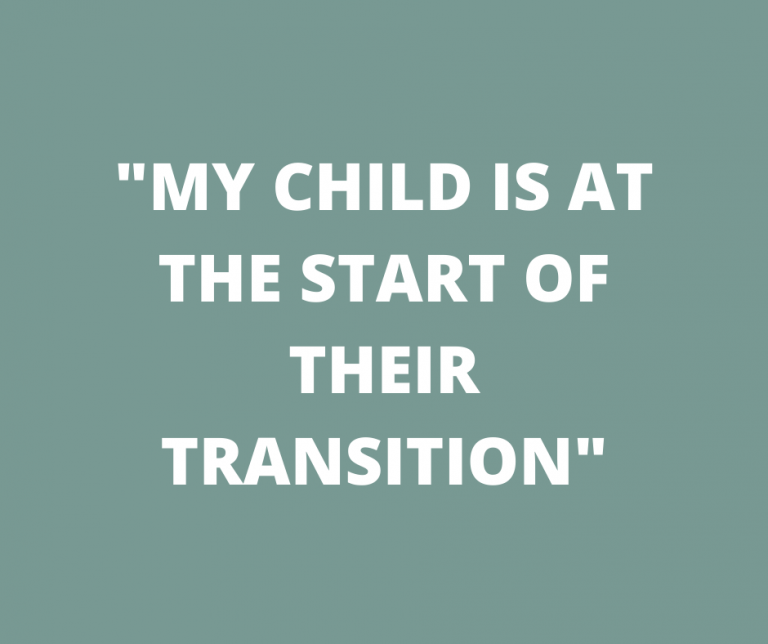
June was Pride Month and we witnessed some amazing and inspiring online celebrations considering the restrictions on movement. We champion inclusivity at Stozzys and are passionate that there is a place for everyone on our platform if they don’t incite hatred. This week we bring to you the story of a young transgender person’s mother as her child transitions from He to She.
We have made it clear that we are in full support of the Black Lives Matter movement and stand in solidarity with those marginalised within society. We recognise that both the LGBTQ+ and Black communities are marginalised and that the fight for equality can be complex and difficult. We long for a humanist approach towards these issues and are grateful to our contributors for shedding the light on their experiences so that we can all read and learn from them.
Every individual life and story matters to us at Stozzys and we are forever grateful to all our Stozzys community members for sharing their perspective and words with us.
This week’s blog brings to you the story of a mother supporting her child through the transition from ‘He’ to ‘She’. We are in full support of those undertaking gender reassignment and anyone who is taking the steps to become a truer and more contented version of themselves. You can read the full story below.
Supporting my Trans child
“When he was 18 my son went off to university. I visited him a couple of times during the first term and he seemed to be happy and enjoying life in London, although his daily routine seemed a bit solitary.
When he came home at Christmas though, something was terribly wrong and he didn’t want to talk about it. Eventually on Christmas Day he admitted to me that he wasn’t sure he wanted to go back to university; on New Year’s Eve I forced him to make a decision – and he confirmed that he didn’t want to return.
I was very worried – not because of quitting university, since many young people make the wrong choice and need to rethink. But people assumed I was disappointed that he had dropped out and told me I should relax about it. I knew though that there was a deeper problem and that my son was not talking about it.
After a couple of months, when he had done some job hunting but without success and had struggled to make any decisions, he and I were alone in the house as my partner was visiting family and the other children were away. My son came into my bedroom late at night and said he wanted to tell me the real reason why he had left university. I was very tense, worried that something terrible had happened to him – that he had been attacked or hurt in some way. Very hesitantly and with some difficulty he explained that, over a number of years, he had come to realise that he was transgender. He held my hand and reassured me that he was still my child and that all the times we had shared throughout his childhood were not lost or to be forgotten, but that he had been coming to terms with this for several years and that being so alone in London had forced him to face up to what he really knew inside.
I was enormously shocked. I thought to myself ‘this is not happening.’ It seemed so unreal. He asked me whether I wanted to ask him any questions; he was so calm and loving and reassuring, but I couldn’t take it in. I just told him that I loved him and said that I would probably have some questions, but not right then. I didn’t sleep at all that night and the whole episode seemed unreal – the next morning I wondered if it had actually happened at all.
For the next couple of weeks I was very up and down. I was fortunate to be able to take time off and access counselling through my employer. I felt so sad that my son had had to deal with these feelings for years and come to terms with this on his own. I also felt very strongly that I wished I had known more about what transgender means; that it was harder for my son to come out because I had no understanding or knowledge at all about it. More than anything I was so proud of all that he had achieved despite struggling with this throughout his adolescence and so happy that he had felt able to tell me.
At the start I felt that I was losing my son and kept thinking of how perfect he was as a baby and obsessing over the idea that he would change his appearance. But very quickly this became completely unimportant. I really enjoyed the unexpected bonus of having him back home and the time spent with him just showed me that nothing had changed, this was still my child, the same loving, sensitive, intelligent person, but we had found something out that deepened my knowledge of them, so we were closer than ever.
My child is at the start of their transition. We went straight to the doctor to ask for a referral to the Gender Identity Clinic and three years later they are still waiting for their appointment. I cannot begin to understand the frustration they feel and I struggle when people refer to my ‘son,’ or ‘the boys’ but since they have not started transitioning socially yet, preferring to wait until they are medically transitioning, the misgendering will continue. Yet life goes on; they are still in a loving and supportive relationship with their girlfriend – but not yet ‘out’ to other friends and their father. My partner, friends and work colleagues are great – but that’s not to say I haven’t been faced with some pretty odd and inappropriate questions, mainly focused on my child’s sex life, which really isn’t anyone’s business but their own. And other members of our family do not accept the idea at all and think it is done for attention, or a phase or because it is in the media. I hope that in time they will come to see that this isn’t a choice, but just part of who someone is.
Someone I love is trans – and I am so proud of them. I like to talk about it in general conversation, in the hope that more people will accept that this is a normal part of life. And in doing so I’ve come across quite a few people who have a trans family member, some of whom feel they have nobody to talk to and sharing support with them is very empowering, not least the charity FFLAG www.fflag.org.uk who support families with an LGBT member.”
If you would like to submit your own true-life story to Stozzys you can do so at stozzys.com.
